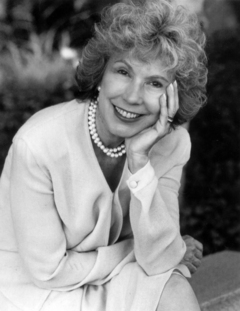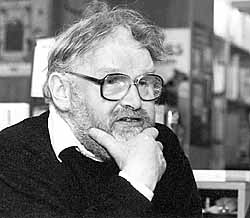A Quote by James Branch Cabell
The man was not merely very human; he was humanity. And I reflected that it is only by preserving faith in human dreams that we may, after all, perhaps some day make them come true.
Related Quotes
They called themselves the Munrungs. It meant The People, or The True Human Beings. It's what most people call themselves, to begin with. And then one day the tribe meets some other People or, if it's not been a good day, The Enemy. If only they'd think up a name like Some More True Human Beings, it'd save a lot of trouble later on
May I make two citations from the words of a discerning editorial writer, not one of my faith, but one of much faith: "If we neglect the divine . . . and give ourselves over wholly to the human," he said, "we may certainly count upon nothing but the triumph of pessimism. . . . True optimism must rest upon a calm, unshakable faith in eternal life and in the unlimited goodness of him who gives it."
The sciences that purport to treat of human things -- the new scientific storyings of the social, the political, the racial or ethnic, and the psychic, nature of human beings -- treat not of human things but mere things, things that make up the physical, or circumstantial, content of human life but are not of the stuff of humanity, have not the human essence in them.
It's good to be young and full of dreams. Dreams of one day doing something 'insanely great.' Dreams of love, beauty, achievement, and contribution. But understand they have a life of their own, and they're not very good at following instructions. Love them, revere them, nurture them, respect them, but don't ever become a slave to them. Otherwise you'll kill them off prematurely, before they get the chance to come true.
Seeing yourself reflected on screen is a very important part of being human. It makes us feel less alone, it make us feel more connected to humanity. Women, gay men, and trans people for a long time have not seen themselves represented, so being able to show the complexities that we all have - just as complex stories as a heterosexual white male - is crucial for us to feel more human and have other people see us as human beings.
I take a less gloomy view. A good life means fighting to be human under growing difficulties. A lot of young folk know this and fight very hard, but after a few years life gets easier for them and they think they've become completely human when they've only stopped trying. I stopped trying, but my life was so full of strenuous routines that I wouldn't have noticed had it been not for my disease. My whole professional life was a diseased and grandiose attack on my humanity. It is an achievement to know that I am simply a wounded and dying man. Who can be more regal than a dying man?
The Three Laws of Robotics: 1: A robot may not injure a human being or, through inaction, allow a human being to come to harm; 2: A robot must obey the orders given it by human beings except where such orders would conflict with the First Law; 3: A robot must protect its own existence as long as such protection does not conflict with the First or Second Law; The Zeroth Law: A robot may not harm humanity, or, by inaction, allow humanity to come to harm.
We do some experiments in humans, some in mice, and there are some questions that can only be answered in nonhuman primates. It's true that you can't immediately say that those experiments will translate into human health, but nevertheless, it is obvious that having an understanding of human memory is going to be important for human health.




































